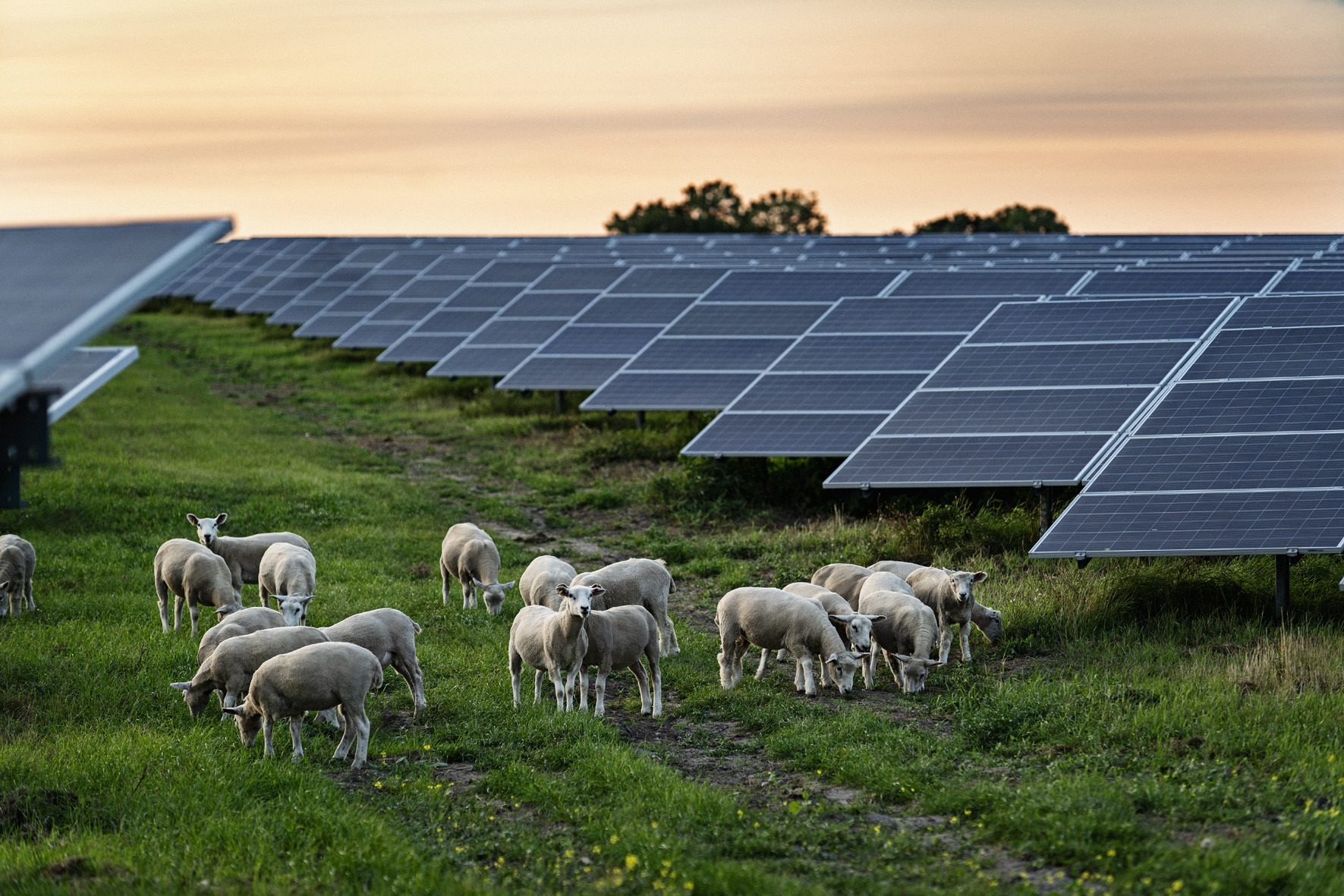Better Energy continues success of solar grazing programme
A new permanent solar grazing programme shows how the Danish energy company optimises maintenance of solar plants and creates a good environment for sheep.

Solar plant installations typically use less than 5% of the land. That leaves 95% of the land available for other activities such as livestock grazing. Since 2014, sheep have been grazing on Better Energy solar plant sites. Now Better Energy is making them a permanent part of their solar projects in Denmark.
There are many benefits to reap from solar grazing. The sheep are sourced from local farmers. By grazing livestock on solar plants, farmers increase their revenue. No pesticides or chemicals are used on Better Energy sites, so livestock can be grazed according to organic principles. The land does not need to be taken out of food production, and the sheep keep the grass down naturally. This provides sustainable vegetation management and eliminates the need for mowing.
“High grass can cast shade on the panels, which can affect the production of green energy. We reduce carbon emissions with solar grazing because we do not use fuel-powered equipment to maintain the site. This makes our solar plants even more sustainable. The farmers receive a steady income, we reduce our operation and maintenance costs and the sheep are provided with a healthy grazing environment,” says Michael Vater, responsible for sustainable business and public affairs.
Finding multiple uses
The shade under the rows of modules protects plants and animals from weather conditions. In the summertime, the panels provide shade from the hot sun, and when it is cold and raining, the panels provide shelter. This improves sheep growth rates and general health. The fencing around the perimeter of solar sites protects animals and habitats from predators.
Michael Vater explains: “We are just beginning to discover the many uses and benefits of protected solar sites. An essential part of our community engagement is the rigorous planning process we use to identify opportunities for the given community. We use this time to discover what is suitable for the respective community, and solar grazing is one of the possibilities that can be activated.”
Download Community Engagement + Q&A brochure